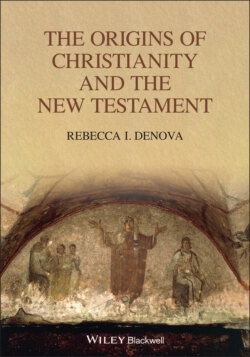Читать книгу The Origins of Christianity and the New Testament - Rebecca I. Denova - Страница 37
A Fourth Quest?
ОглавлениеThe latest books on the historical Jesus and Paul are sometimes described as the “fourth quest,” in that they introduce more inclusive methodology. An important area of research that is now recognized is the study of texts that did not make it into the canons but are equally important to highlight the views of contemporary Jewish and Christian groups. These texts are categorized under “pseudepigrapha” or “apocrypha.” “Pseudepigrapha,” “false writing,” were texts written in the name of a famous or past individual to convey credibility. “Apocrypha” meant “hidden revelations.” Most of these texts concern details of the Prophetic “final days,” such as the books of Enoch.
A full understanding of the gospels and the letters of Paul cannot be complete without an examination of daily life in the cities of the Roman Empire in the first century. Aiding these studies are the most recent archaeological excavations and discoveries. The first Christian communities were established in these cities, where native cults, synagogues, and Christian “house” groups lived in close proximity and interacted.
Arising from the work of E. P. Sanders, a movement known as the “New Perspective on Paul” has produced articles and books on ways in which to read Paul on Paul’s terms, and not the perspective of later Christian theology (especially Martin Luther). At the center of this research is Paul’s relationship to Judaism. These studies are related to post-Holocaust reflections on the ways in which to understand the roots of “Jewish–Christian relations” in the earliest communities.
